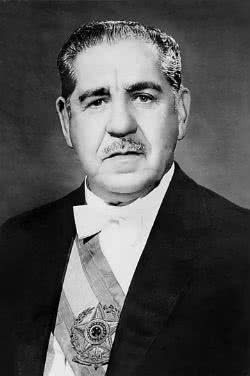In the first decades of the nineteenth century, Brazil had left its status as a colony of Portugal with the arrival of Portuguese Royal Family in 1808. This fact prepared the ground for a great political and cultural ferment in Brazil, especially in the city of Rio de Janeiro, which resulted in the rupture with Portugal, in the 1820s, which marked, in Brazil, the process of Independence (carried out in 1822) of the country and the consolidation of the imperial model of government. Amidst the consolidation of the Empire in Brazil, D. Peter I he faced many outbreaks of resistance and took part in public and private situations that aggravated his image before his subjects. The problems that amassed in the First Reign ended up culminating in the abdicationof the emperor in 1831.
Causes of D's Abdication. Peter I
The problems that the reign of D. Pedro I presented were of various orders, starting with the oscillation that the emperor (because he was heir to the Portuguese throne) maintained between Brazilian and Portuguese interests. The exercise of PowerModerator, which gave the emperor the political strength to dissolve the Constituent Assembly and appoint lifetime positions, also clashed with the political perspective of liberal leaders.
In addition, regional insurgencies such as the Confederation of Ecuador and the unsuccessful military campaign in War of Cisplatin (1825-1828), in which the imperial army was humiliated by the forces of Argentina and Uruguay, provoking the indignation of the officers against the emperor. Added to this was the financial crisis of 1829, which brought about the closure of the Bank of Brazil and the devaluation of the national currency.
The political situation in Europe was also reflected in Brazilian lands. Dom João VI he died in 1826, and the political situation in Portugal became an impasse, generating concern among Brazilian elites, since Pedro I was one of the heirs to the Portuguese throne and could eventually subordinate the country again to the crown Portuguese. Another outstanding fact was the fall of the French king CarlosX, and the subsequent start of the call June Monarchy (a monarchy with a liberal tendency) in France, which would contaminate other European nations.
Bottled Night
In the midst of all this turmoil, D. Pedro I, who was already being attacked by several press agencies, such as the newspaper AuroraFluminense, sought to link up, in 1831, with some liberal leaders through a visit to Minas Gerais. The visit, however, was unsuccessful. The Portuguese who inhabited the city of Rio de Janeiro, upon learning of the failed political articulation of Pedro I, decided to organize a reception for the emperor with lamps lit in the streets of City. The Brazilians, disgusted by this gesture, began to break the lamps in the houses of the Portuguese, who, in turn, retaliated by throwing bottles at the Brazilians. This episode became known as the “Bottled Night”.
the abdication of the throne
With the pressure generated by this set of events, Dom Pedro decided, on April 7, 1831, to abdicate the throne in favor of his son, born in Brazil, Pedro de Alcântara, who would become the second emperor of the parents. On his abdication note is written:"Using the right that the Constitution grants me, I declare that, I have very voluntarily abdicated in the person of my much loved and dear son, Mr. D. Pedro de Alcantara. Boa Vista, April 7th, one thousand eight hundred and thirty-one, tenth of Independence and the Empire. Peter."
By Me. Cláudio Fernandes



